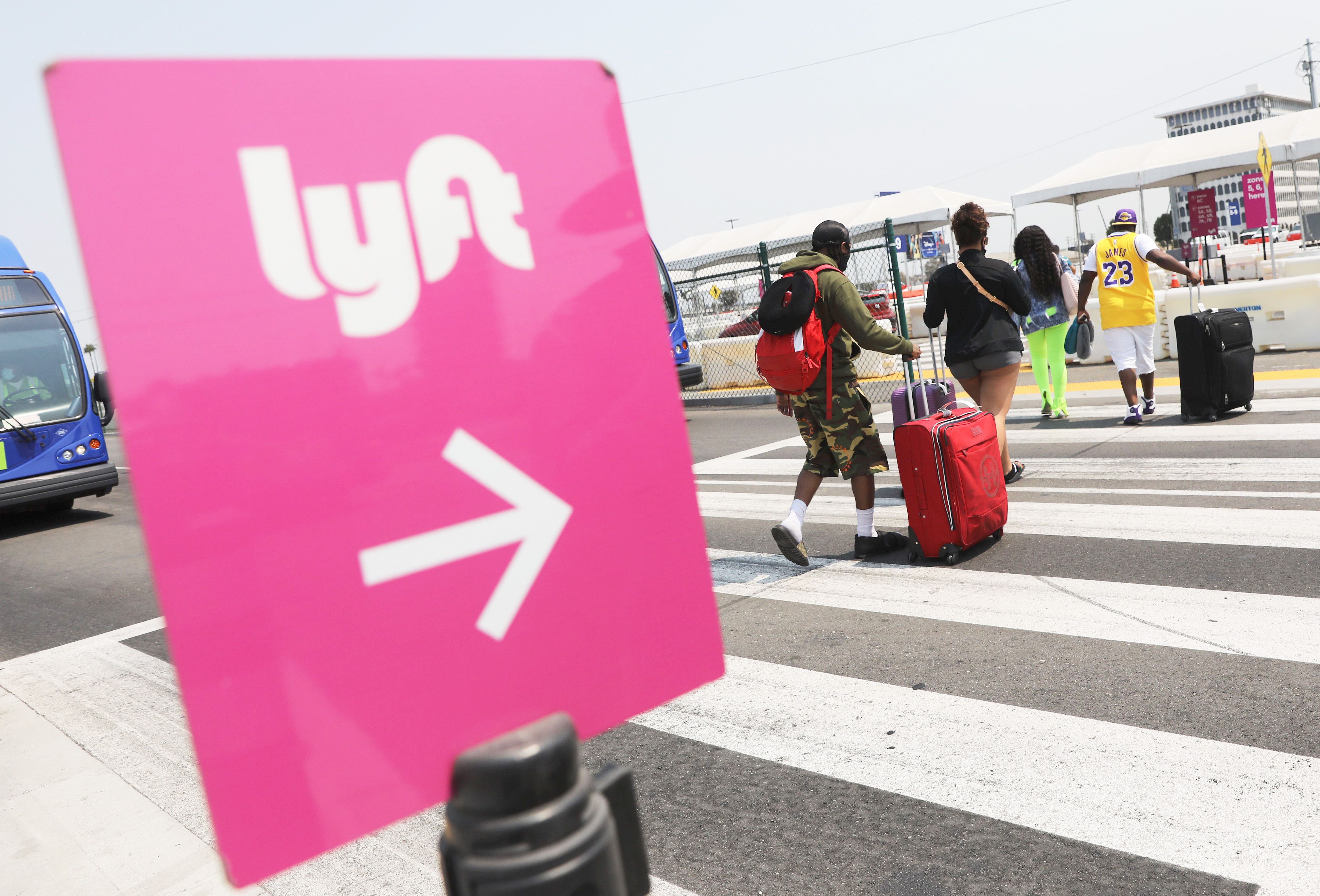
Air travelers walk toward a Lyft pickup area at Los Angeles International Airport (LAX) on August 20, 2020 in Los Angeles, California.
Mario Tama | Getty Images
Lyft and Uber said Friday they would cover legal fees for drivers on their respective platforms who are sued under Texas’ restrictive abortion law that went into effect this week.
The law bans most abortions after six weeks of pregnancy, a time period before many women have even discovered they’re pregnant.
Patients may not be sued, but people aiding the procedure, including doctors, people paying for the procedure and clinic workers are at risk. That includes rideshare drivers who can be punished for transporting women to clinics to receive abortions, where they could be fined $10,000.
“Drivers are never responsible for monitoring where their riders go or why. Imagine being a driver and not knowing if you are breaking the law by giving someone a ride,” Lyft said in a release.
“Similarly, riders never have to justify, or even share, where they are going and why. Imagine being a pregnant woman trying to get to a healthcare appointment and not knowing if your driver will cancel on you for fear of breaking a law. Both are completely unacceptable,” Lyft added.
Abortion rights activists and providers argue the law effectively overturns protections set under Roe v. Wade in 1973.
Lyft said its defense fund would cover 100% of legal fees incurred by drivers because of the law, being the first rideshare company to do so. The company will also donate $1 million to Planned Parenthood.
Uber shortly followed by saying it would also cover fees.
“Drivers shouldn’t be put at risk for getting people where they want to go. Team Uber is in too and will cover legal fees in the same way. Thanks for the push,” Uber CEO Dara Khosrowshahi said in a tweet.
Corporations have been relatively silent so far on the matter. Texas-based dating companies Bumble and Match‘s CEO Shar Dubey responded to the measure Thursday, each announcing relief funds.
“Surely everyone should see the danger of this highly punitive and unfair law that doesn’t even make an exception for victims of rape or incest. I would hate for our state to take this big step back in women’s rights,” Dubey wrote in a memo to employees this week.





































